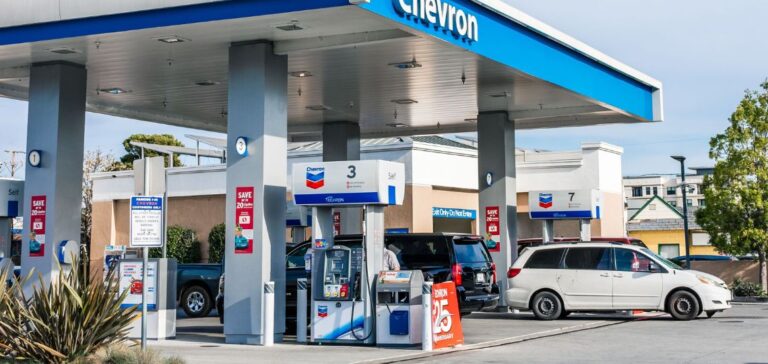Governor Gavin Newsom has introduced legislation to impose minimum fuel inventories on refiners operating in California.
This initiative follows fluctuations in gasoline prices, often caused by insufficient inventory levels.
By guaranteeing a minimum 15-day supply, the state seeks to stabilize prices and mitigate unexpected increases that affect both consumers and industrial players.
California, with its specific fiscal and regulatory features, incurs significant additional costs for consumers.
Environmental taxes and other fees impose an average surcharge of 70 cents per gallon compared to other states.
However, these fixed costs are not enough to explain recent variations, where the gap between prices in California and the national average has regularly exceeded $1 per gallon.
A regulatory framework to prevent supply shocks
Insufficient fuel stocks have been identified as a key factor in sudden price rises.
When they fall below critical levels, refiners find themselves vulnerable to supply chain disruptions, leading to disproportionate price increases.
In response, the Governor’s proposed legislation aims to introduce minimum inventory requirements, deemed essential by watchdog groups such as Consumer Watchdog, to protect the California market.
The measure is designed to reduce volatility by maintaining a balance between supply and demand.
It imposes an additional constraint on refiners, but is intended to ensure a degree of market resilience in times of stress.
Industry professionals, well aware of the logistical and financial implications of these obligations, are expecting necessary adjustments in inventory management.
Implications and outlook for the energy sector
The impact of this legislation on refiners could be significant.
The costs associated with maintaining higher inventories will have to be absorbed, which could translate into higher prices for end consumers.
However, this approach is primarily aimed at reinforcing market stability and preventing supply shocks similar to those that recently impacted California.
This regulation could also influence market dynamics beyond the state’s borders, prompting other jurisdictions to adopt similar policies to protect their local markets.
In this context, industry professionals will need to assess the impact of these new requirements on their operations and on the competitiveness of the California market.
Observers will note that this initiative is part of a broader framework for regulating California’s energy market, aimed at ensuring greater transparency and better resource management.
The ultimate aim is to limit the risks of excessive price volatility that have marked recent years.






















